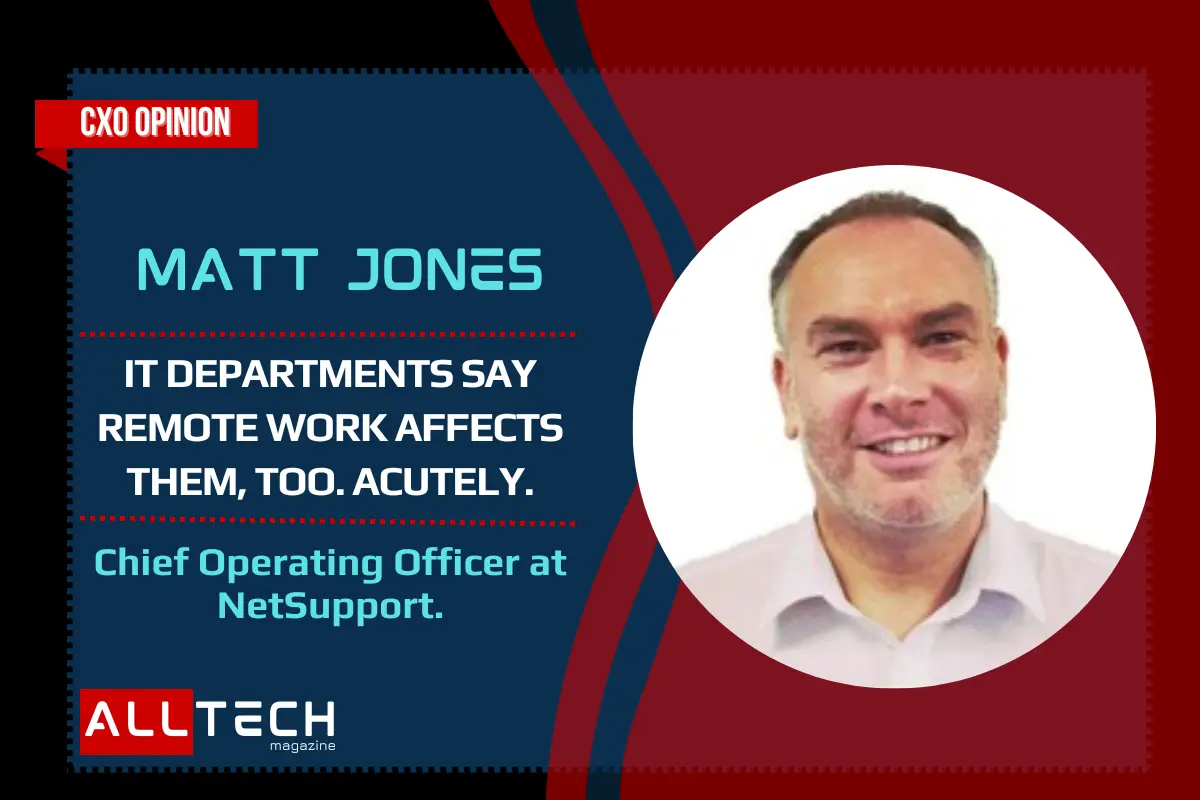It’s a sizable understatement to say aloud that remote and hybrid work have changed the way all of us do our work. In fact, the shift has been so dramatic that we’re still, for the most part, figuring out just how sizable an understatement that is.
Work-life balance. Check. Recruitment and retention – check. Adjusting productivity expectations – for better or for worse – also check. And on and on.
One place we think the remote work shift has been felt most and appreciated the least is in IT departments. Actually, we more than think that – we know it. And we know because we asked.
Late last year and spilling into the early first quarter of 2024, our company (NetSupport) asked IT and systems managers how their jobs had changed and what they were worried about, if anything. What they told us did not really surprise us on the merits, the content of what we heard. What did surprise us was the intensity of that feedback.
At the headline level, we asked corporate IT leaders how the “complexity of managing your company’s network changed over the past three years.” In response, an eye-opening 83% of corporate IT leaders told us the complexity had either “increased significantly” (42%) or “increased moderately” (41%).
No one said the complexity “decreased significantly,” and just one percent said the complexity of managing their network “decreased moderately.” And while I want to think that the lone souls who said that complexity decreased were using our products to view, analyze and manage their systems, it’s just as likely that they misread the question.
Either way, the point is that the work of enterprise IT departments has gone from complicated to jedi-level complex. And very quickly.
We also know that the increased complexity in IT network management is linked to the shifts in remote work because, once again, we asked. Our question was simple, “what caused this shift?” IT leaders could select multiple causes. But the top response was “remote and hybrid working” (70%). A close second was “security or cybersecurity” at about 64%.
You don’t need an advanced degree in computer science to put together that remote work and cybersecurity risks are related. The more people you have remote accessing any system, the more disconnected they are from it, the greater the risk. And to make yet one more sizable understatement, those risks are significant.
For the record, the third most indicated cause of increased complexity in managing IT networks, our IT leaders said, was “new technology implemented,” at 54%. Nothing else – not even “costs and budgets” – scored above 40%.
When asked directly about the IT concerns related to an increase in remote work, a majority of respondents (56%) said, “data/device/network security.” No other concern topped 40%.
Further in the survey, about 30% of IT leaders said that, as a result of changes in their work, they have shifted priorities to an “increased focus on remote access solutions.” Which makes sense. Nearly as many (28%) said they were shifting focus to “centralized management and automation.” That makes sense too.
The results are not ambiguous. IT departments are bearing the brunt of the significant and complex change in the way people work, and how they are increasingly expected to do their work. Remote work has made network management and network security considerably more complicated and introduced substantial risk – and IT leaders are nearly uniformly worried about it.
What we did not ask in our survey was whether IT leaders thought the leaders in their companies understood these changes, complications and threats, which is a question we’ll ask next time. We also did not ask whether IT departments were getting enough support to address these changes and new dynamics, though we think that answer is obvious – no. In this context, there probably is no such thing as enough.
More obvious than that however, is that wherever corporate leaders and their teams settle on the future of work – remote, hybrid or RTO – serious conversations with, and investments in IT, are going to be necessary. Those should already be happening and if they are not, they should be started immediately. On place-of-work policies, IT departments are not the tip of the spear, they are the spear. Shield too.
